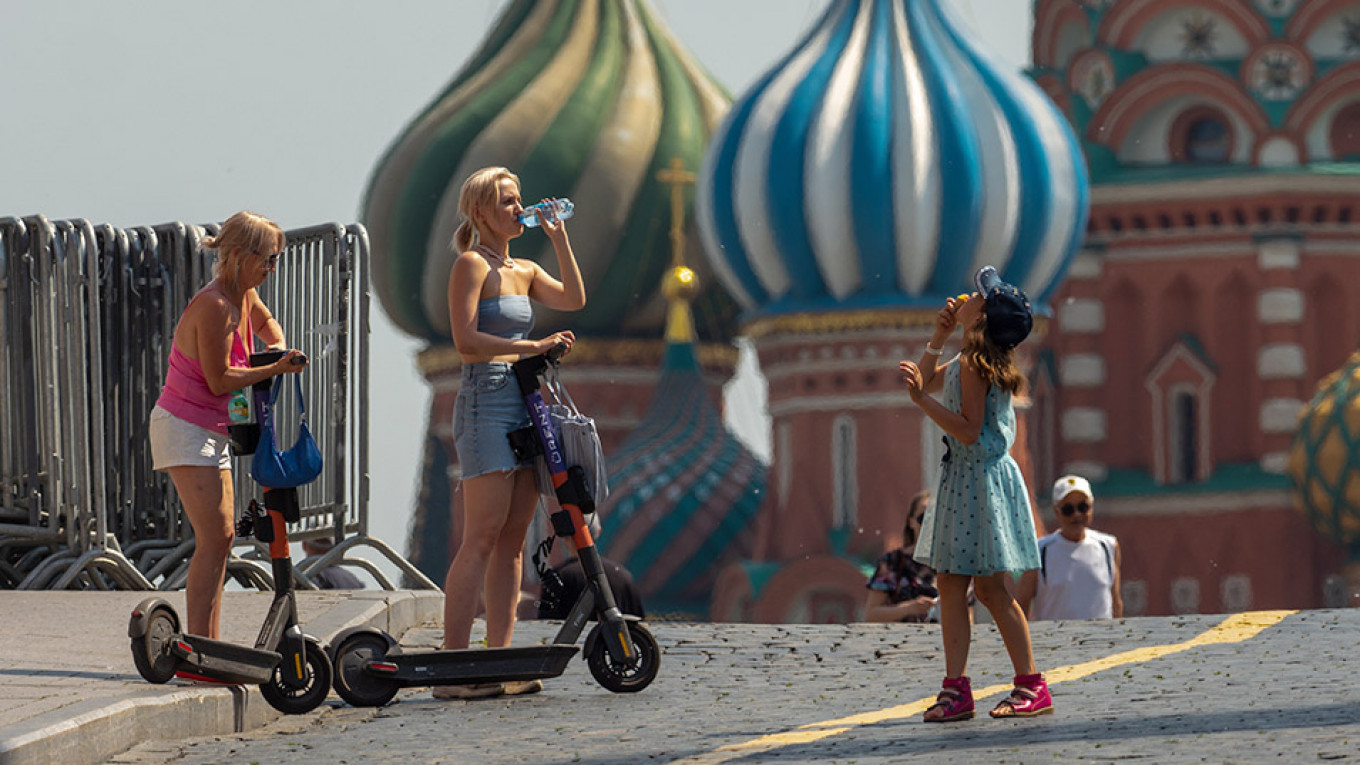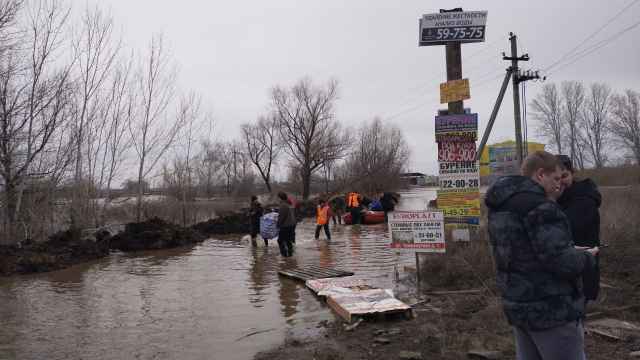A record-breaking heatwave hitting Moscow and other parts of Russia shows no sign of letting up until July, the head of Russia’s meteorological service told the Izvestia newspaper on Wednesday.
While meteorologists initially predicted that the heatwave would retreat at the beginning of next week, the abnormal temperatures are now expected to last well into July, Roshydromet head Roman Vilfand told Izvestia.
This Tuesday became the hottest June 22 in Moscow since 1879, just after Monday became the hottest June 21 since 1956. But the absolute record for any day in June was hit on June 23 when the temperature reached 34.8 – 0.1 C hotter than the previous June record from in 1901.
And as expected, Thursday became the hottest June 24 in Moscow history, thermometers reached 33.8 C.
Other Russian cities have also been feeling the extreme heat this week. On Wednesday the temperature in Tver rose to 35 C, an all-time June record for the city located northwest of Moscow. Thermometers in Voronezh hit the same mark, making this Wednesday the hottest June 23 in the southern city’s history. Petrozavodsk, Penza and Vologda also broke their respective heat records Wednesday.
Heatwaves are typically caused by prolonged anticyclones, which happen when atmospheric pressure keeps hot air closer to the ground while reducing cloud cover above.
Anticyclone conditions over Russia now resemble those seen in 2010, when record temperatures in western Russia helped spark peat fires that blanketed Moscow in thick smoke. Some 56,000 people were estimated to have died that summer as a result of the heat wave and the smog.
Vilfand told the state-run RIA Novosti news agency that weather anomaly is especially strong in Russia’s European and Far East regions, with temperatures in Siberia substantially cooler.
Yet temperatures in parts of Siberia are now 15 C higher than normal, according to Arctic Today. While the 2010 wildfires had been concentrated in the European part of Russia, they have mainly been located in Siberia in recent years, even reaching beyond the Arctic Circle. Satellite photos show that fires are now being recorded at the 72nd parallel – further north than at any time in the last two years.
As climate change warms Russia 2.5 times faster than the planet as a whole, the country is becoming increasingly vulnerable to abnormal weather events.
A Message from The Moscow Times:
Dear readers,
We are facing unprecedented challenges. Russia's Prosecutor General's Office has designated The Moscow Times as an "undesirable" organization, criminalizing our work and putting our staff at risk of prosecution. This follows our earlier unjust labeling as a "foreign agent."
These actions are direct attempts to silence independent journalism in Russia. The authorities claim our work "discredits the decisions of the Russian leadership." We see things differently: we strive to provide accurate, unbiased reporting on Russia.
We, the journalists of The Moscow Times, refuse to be silenced. But to continue our work, we need your help.
Your support, no matter how small, makes a world of difference. If you can, please support us monthly starting from just $2. It's quick to set up, and every contribution makes a significant impact.
By supporting The Moscow Times, you're defending open, independent journalism in the face of repression. Thank you for standing with us.
Remind me later.






